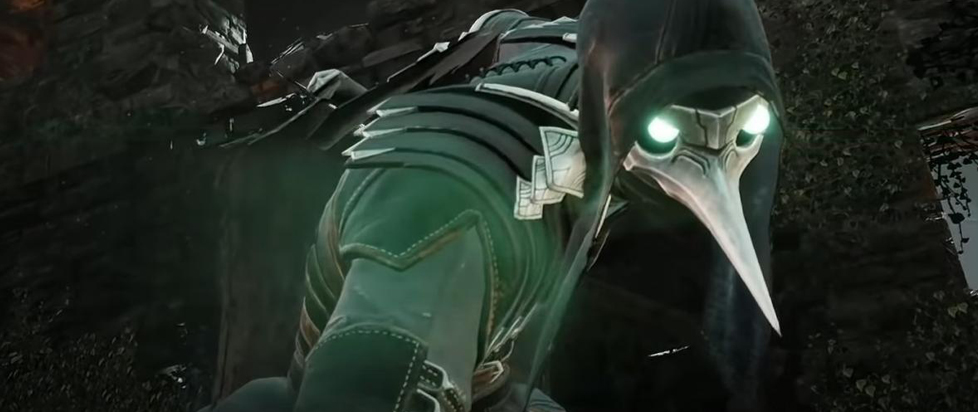
The Accessible Soul of Thymesia
This feature is a reprint from Unwinnable Monthly #152. If you like what you see, grab the magazine for less than ten dollars, or subscribe and get all future magazines for half price.
———
This series of MegaGrant spotlights is made possible through the generous sponsorship of Epic Games. While Epic puts us in touch with our subjects, they have no input or approval in the final story.
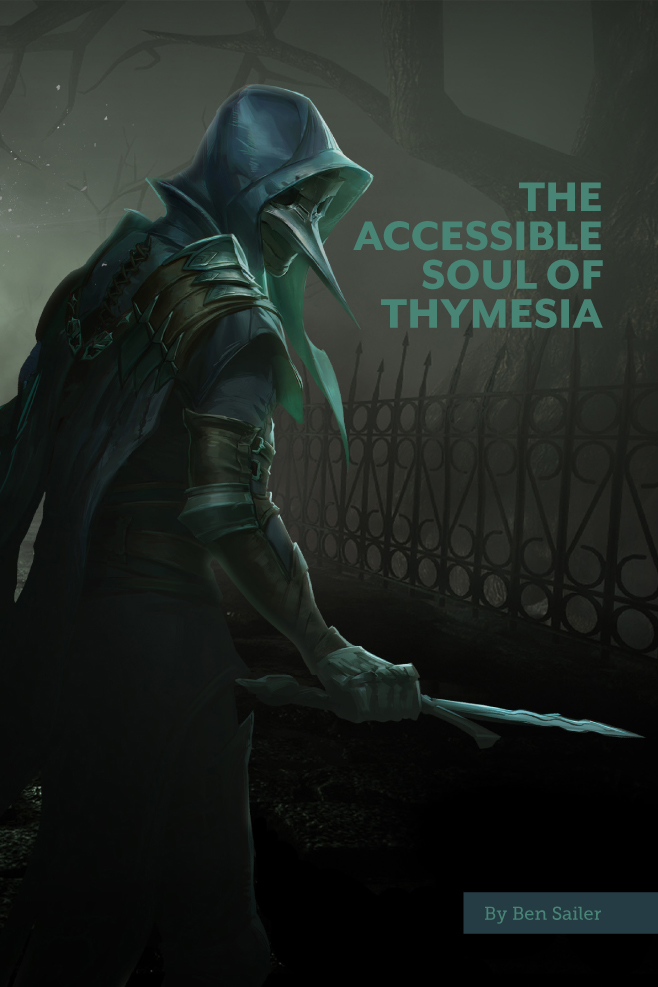
There are only a handful of videogames in history that have borne entire namesakes for a genre or subgenre.
“Metroidvania” is one contemporary (and contentious) example, referring to non-linear side-scrolling adventure games that borrow from the blueprint established by Metroid and Castlevania. “Rogue-like” is another example that once required some explanation for its historical context, to now being widely understood as fantasy titles with procedural level generation and gameplay loops built around perma-death mechanics (though it’s less well-known the genre derives its name from the 1980 ASCII title Rogue).
The latest label that follows this taxonomical convention in modern parlance may be “Soulsborne,” applied to games influenced by From Software’s Dark Souls and Bloodborne. Once viewed as niche concerns, they’ve somewhat surprisingly grown into a full-blown cultural phenomenon, cutting against the grain of difficulty discourse by achieving extreme difficulty through exceptional design (rather than being cheap).
While these titles certainly didn’t invent the third-person action RPG, they have reset expectations for what they can be, in terms of offering challenging design, deep lore and painstakingly detailed worlds. They’re also arguably an acquired taste. What opportunities could there be in the market for games that delve into similar subject matter but re-envision their mechanics to be more personal and accessible?
Taiwan-based development shop OverBorder Studio is answering that question with Thymesia. According to lead designer Ross Huang, it’s a “fast-paced action RPG with an intricate plague weapon system and heavy emphasis on build variety.” From what we’ve seen so far, the trappings of the Soulsborne style are there; a grim and decaying world with complex combat and an emphasis on pattern recognition. But beneath the surface, things promise to be a bit different, borrowing inspiration from its source material, while coloring outside the lines.
“When I’m playing games, I often imagine what would happen if I could change the rules a little,” says Huang.
Thymesia takes place in a mysterious kingdom that runs on the power of alchemy, utilizing the craft for medicine and defense from monsters. Its relationship with the alchemical arts proved to be fraught with danger, however, and its use came at a high cost for the kingdom’s population. When the public pushed to stop its implementation before it could cause disaster for the people, resistance from the halls of power was brutal and swift, and the kingdom descended into chaos amid a monster invasion.
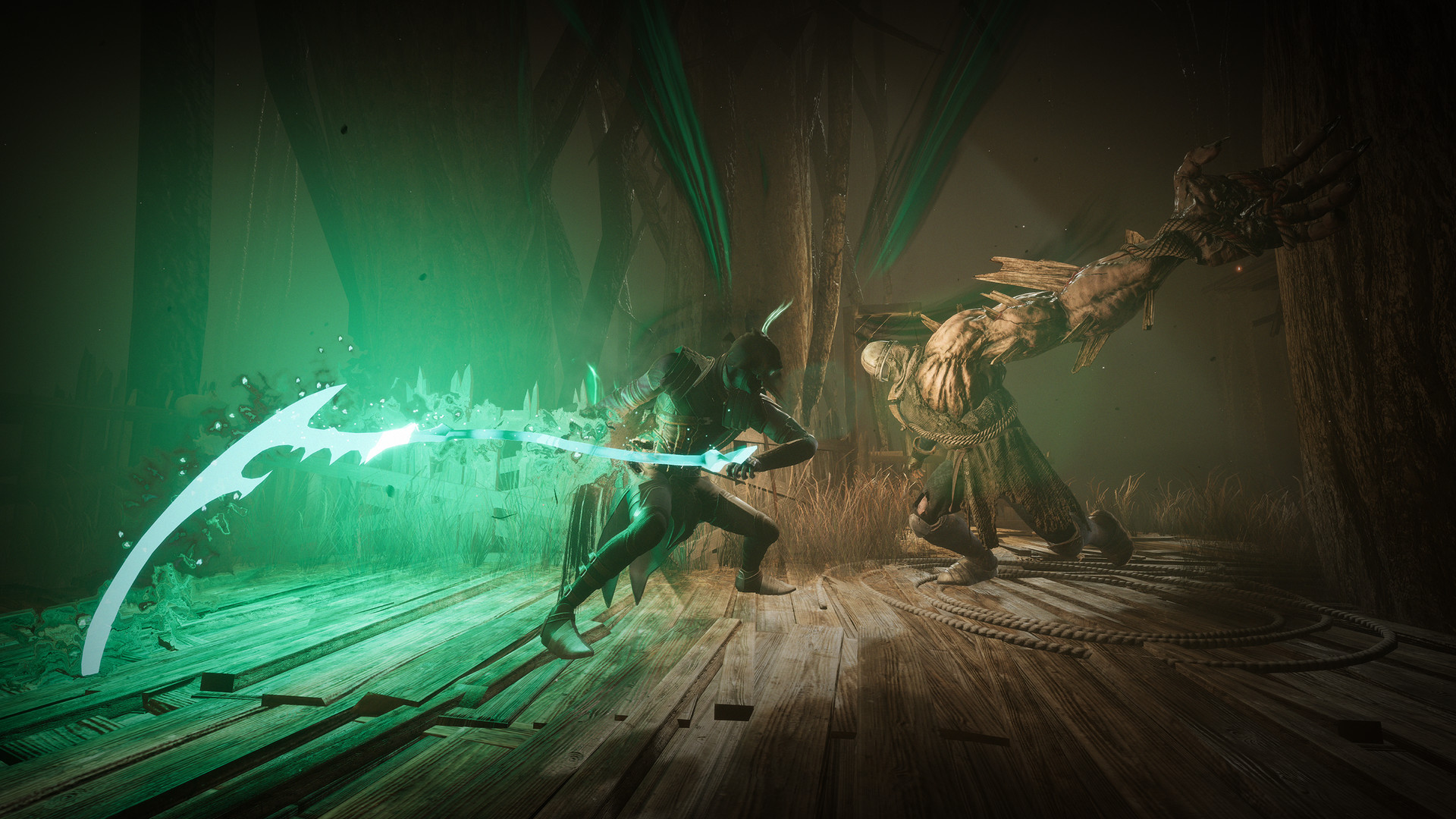
This is where we find the story’s protagonist, a cloaked figure named Corvus donning a bird-beaked plague mask and equipped with the power to transform into a raven. He’s been tasked with solving the crisis that has enveloped the kingdom, and while that sounds tough enough for one person alone, it’s even tougher when you’ve lost all your memories due to circumstances of which you have no recollection. His goals are then twofold: recover what was wiped from his mind while preventing societal collapse.
Sounds like an ordinary Monday at the office, right? All digressions aside, the design and background for Corvus as a character directly tie into the game’s lore and have been deeply connected to Thymesia’s core narrative beats from the very start.
“At the very beginning of the development, we knew that we wanted to tell a story about the plague, so we started drawing concept art for environments and characters based around that idea,” Huang says. “It’s here we came up with the character design of Corvus, a mixture of a plague doctor and an assassin. The beak-like mask worn by plague doctors was part of the reason we decided on the design. Ravens and crows are often seen as carriers of plague and death, so we felt this worked for the story we wanted to tell.”
Once players step into the shoes of Corvus themselves and move around the bleak world in Thymesia, they may think they know loosely what they’re in for. According to Huang, the actual mechanics that underpin the game are built to support a variety of playstyles. Rather than tasking players with cracking the code on how to defeat difficult enemies and bosses as they would in a From Software game like Sekiro: Shadows Die Twice, there’s a wide level of leeway with one’s weapon, armor and spell selection.
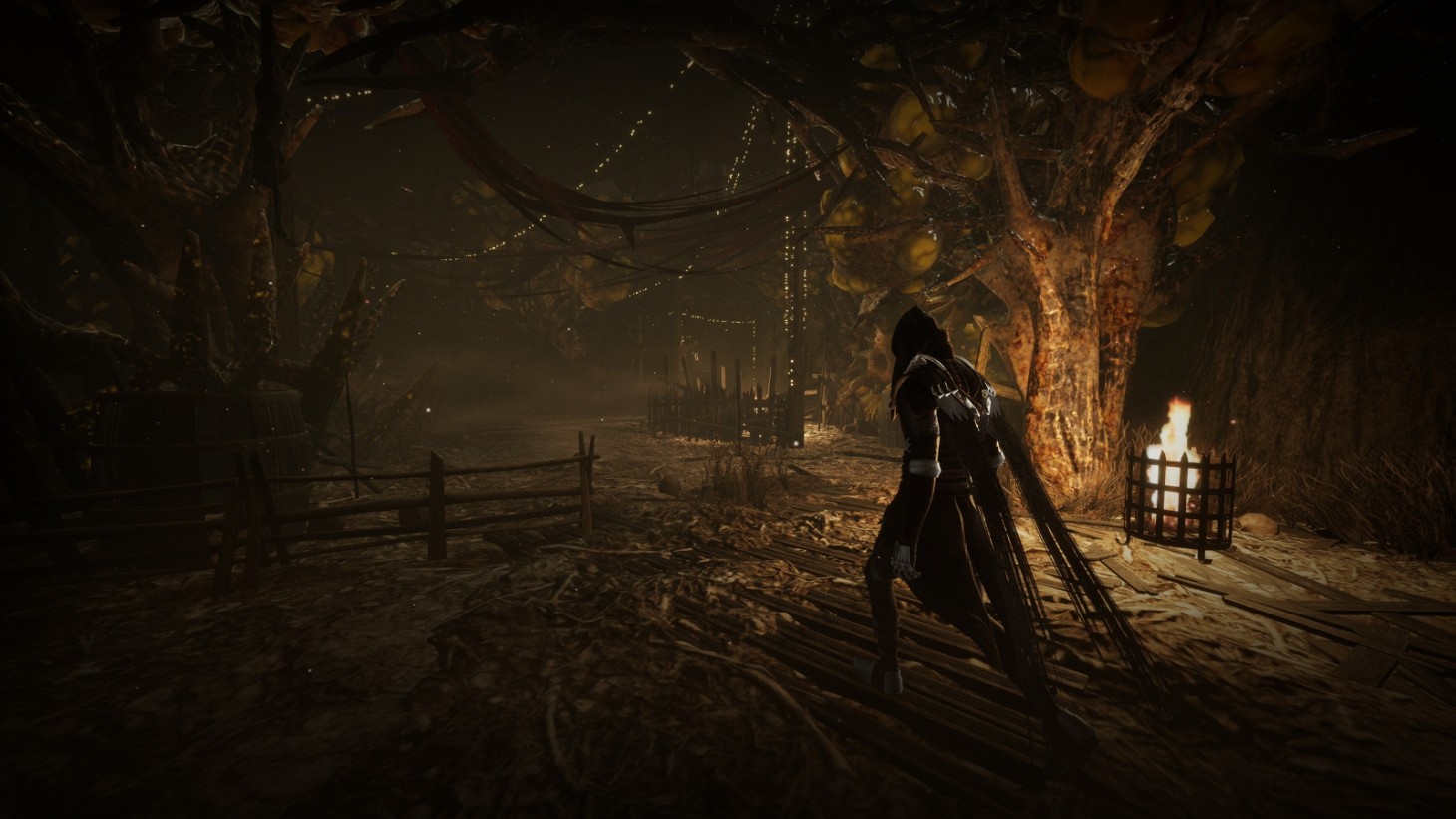
These choices have more than just aesthetic consequences; they directly impact how players can approach the game. It’s an intentional design decision that allows players to discover their own preferred approach, with the hopes that it will make these types of games more appealing to people who have bounced off them in the past.
“We put a lot of effort into the build varieties in Thymesia, and we really hope players can find their favorite play style so that more people can enjoy Souls-like games,” Huang says.
Corvus can acquire weapons from enemies in a way that allows players to choose which options best suit the way they want to play. He can also apply a touch of alchemy to his armaments with potions that can modify weapon capabilities and imbue them with different effects. More than just a plot device, alchemy itself is integrated with the way players create the experience they want from Thymesia.
OverBorder Studio has also taken an interesting approach to difficulty in Thymesia. Any game that takes cues from the Soulsborne school of thought (where the challenge is always steep but never unfair) will naturally place an emphasis on how it expects players to make progress. While many modern games rely on difficulty settings and sliders, Thymesia does away with difficulty options altogether. Instead, it gives players agency to develop Corvus’ skillset in a way that enables them to creatively conquer challenges, without requiring them to lock into one playstyle for the game’s duration.
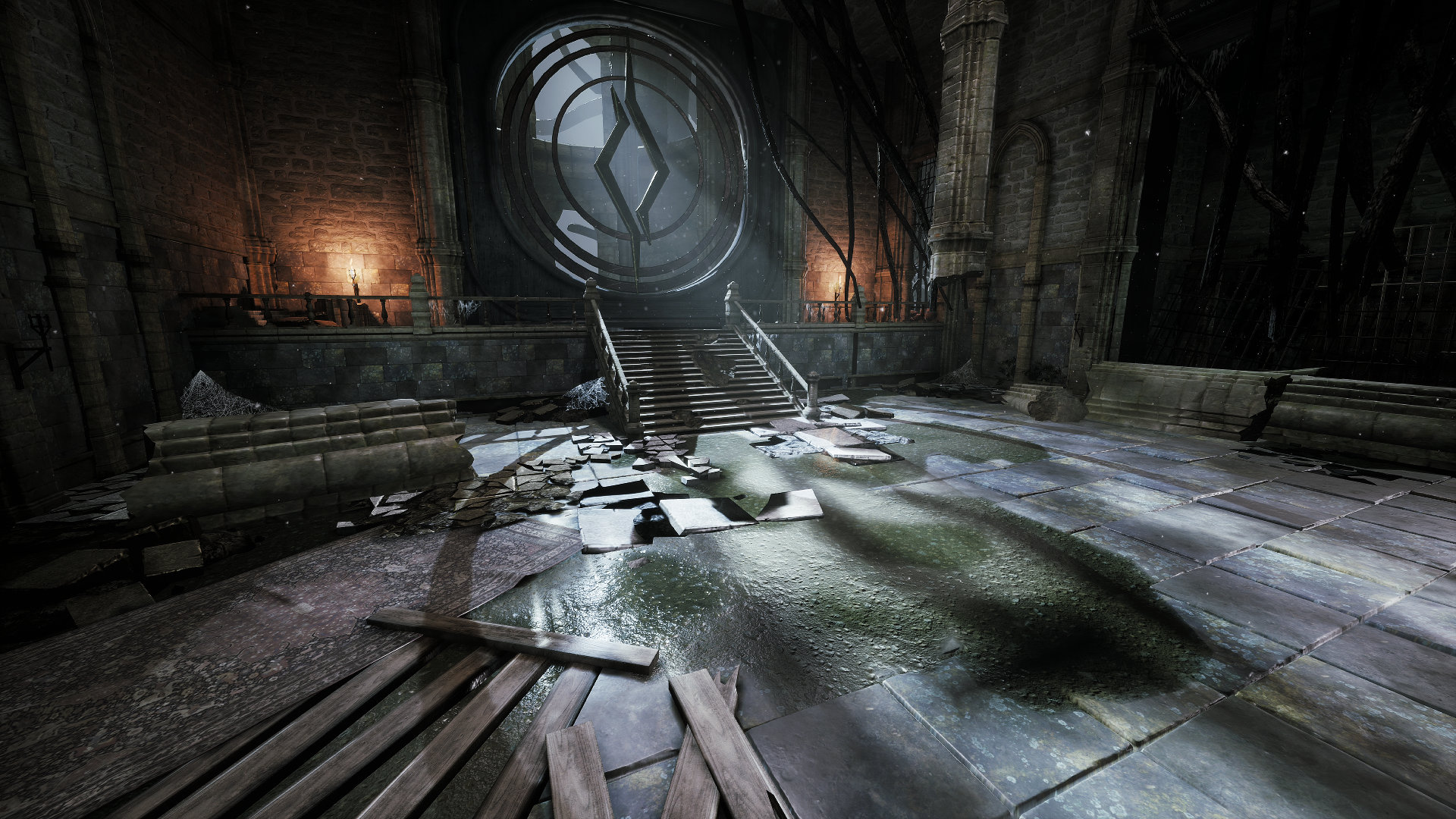
“Beyond those stats you can increase as you level up – health, attack power and energy – we have a talent system, which grants a point each time you level up,” Huang says. “The system also lets you learn and unlearn talents at any checkpoints you find in-game, so you can easily re-spec if you feel you’re struggling with your current build. Using the different talents, you can chain together longer combos to deal more damage, regenerate feathers faster to keep enemies at a distance or swap out the deflect ability and replace it with defense, so you don’t have to worry about timing.”
It’s an innovative approach that promises to allow players to explore Thymesia the way they see fit, but without resorting to “easy” modes, which theoretically could diminish the satisfaction of encountering problems and overcoming them with one’s own wits.
That balance should also allow players to not only explore the full depths of Thymesia’s narrative and lore, but to also see all the game’s deeply detailed environments. While its dimly lit stone walkways and cavernous dungeons will look a bit familiar on the surface, visual flourishes like the lighting trails that follow attacks add flashes of color and vibrancy to a world that, shall we say, has seen better days (or to put it in other words, it doesn’t look like anyone has a need for sunblock here). In its preview builds, it already looks like a refined and well-crafted fantasy world where fans will feel at home.

It’s an impressive achievement thus far for a small studio (and one made possible in part by the power and accessibility of Unreal Engine). Indeed, taking on the polish and production values of a triple-A title, especially in a genre where expectations are sky high, is not an endeavor for the faint of heart. Yet Huang and the team at OverBorder appear to be up for the challenge, which shows both within the aesthetic and mechanical quality of their output, and the confidence they project in themselves.
Of course, it helps that they’re not going it alone, with none other than Worms masterminds turned independent label Team17 seeing enough potential to sign on as the publisher for Thymesia. Plus, thanks to funding from the Epic MegaGrants program, OverBorder has been able to invest in several areas of Thymesia’s design and take their time to ensure the final product is polished. This has enabled the studio to further punch above their weight and release a title that looks, feels and sounds like it could have come from a much larger team.
“OverBorder is a very small independent studio with limited resources, so every penny helps,” Huang says. “The fund from Epic MegaGrants means we’ve been able to hire a composer to make new music, update the special effects, improve the sound effects and spend a little longer on the game to make the experience the best it can possibly be for players. The Epic MegaGrants program also resulted in additional media coverage, so more people are now aware of Thymesia.”
Consider us aware and intrigued. Thymesia is scheduled to release on PC, PS5 and Xbox Series X|S later in 2022, giving players an opportunity to step into the role of Corvus in his struggle to piece together his own memories while fighting dark forces. And, in the process, they just might get to tweak the rules to give themselves the edge.
———
Ben Sailer is a writer based out of Fargo, ND, where he survives the cold with his wife and dog. His writing also regularly appears in New Noise Magazine.




